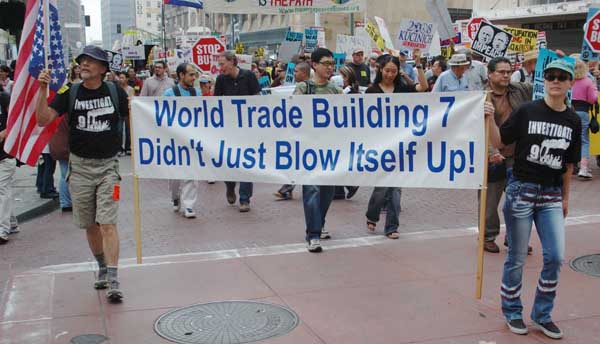Subscribe to ShahidulNews
9/11 again, responding to readers?
By rahnuma ahmed
My two-part series on 9/11 and the blowback paradigm has elicited considerable response from readers, not, I must add, in the pages of New Age but through e-mails, addressed to me personally (Part I, Does the `blowback? paradigm explain 9/11? Truth-ers disagree, September 19, 2011; Concluding Part, September 20, 2011, New Age).
Varied responses.
I think you need to write another piece, to wrap up the whole thing. Digesting all the stuff, even if it was in two-parts was quite difficult. I?d like to chew on what you?ve written, and to know more. Is that possible?
I found two things very important and interesting, wrote another reader, a PhD student at an American campus. The American left?s phobia of conspiracy which leads to a psychology of denial, precluding the possibility that the American state is far more vicious than imagined by leading Left writers. And the other thing is what Parenti says of conspiracies, that they are `a component of the national security political system in the US, not deviations from it.? It just opened my eyes.
Another doctoral student, she too, a Bangladeshi, wrote from a university campus in England. It clarifies the Leftists stand for me. I?d come across many scholars and students who are equally critical of American foreign policy but disagree with Chomsky?s analysis. I?d never understood why, it?s clear now. Congrats for clarifying how leading Left thinkers too, are wedded to a state-driven paradigm.
Chomsky?s acceptance of the official version and his gross generalisations about so-called conspiracy theorists, wrote another reader, makes me wonder how far left, dissident intellectuals are capable of raising questions about the nature of the state within which they lead their lives. It makes me wonder about the boundaries of Chomsky?s critical inquiries, about the social nature of his relationship to the American elite, which is part of the global elite. What I found most appealing in what you wrote is not so much the 9/11 Truth movement per se as how iconic left intellectuals resist paths seeking to discover the truth.
`There?s by now a small industry on the thesis that the administration had something to do with 9-11,? says Chomsky.
To speak of the 9/11 Truth movement thus, says Barrie Zwicker, is a familiar put-down. `Small industry? often implies a `cottage industry,? it conjures images of a `tiny minority of energetically mistaken individuals? some of whom may be making money off it, thereby portraying their motive as `disreputable.?
